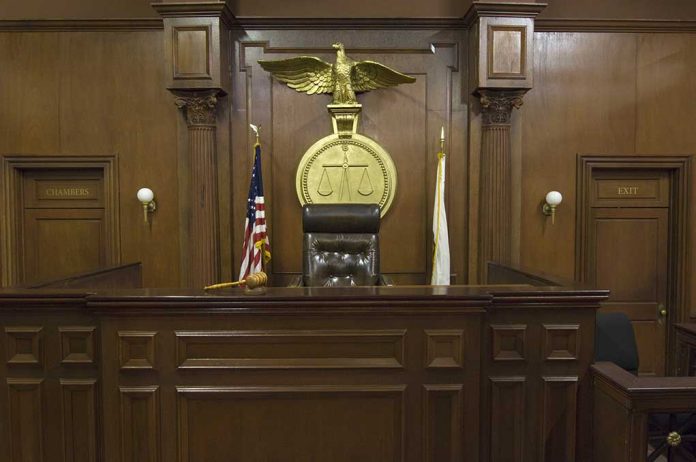
A federal judge ordered the Trump administration to return a Venezuelan man wrongfully deported to El Salvador, marking the second such ruling as legal battles over strict immigration enforcement intensify.
Key Takeaways
- Judge Stephanie Gallagher ruled that the deportation of a 20-year-old Venezuelan man violated a 2019 settlement protecting young migrants with pending asylum cases
- This is the second recent case where federal judges have ordered the Trump administration to return wrongfully deported individuals
- The ruling challenges President Trump’s aggressive deportation plan, which aims to remove up to 1 million people in his first year
- The court found no evidence that the deported individual posed a threat to public safety, contradicting the administration’s justification
- The Justice Department argued the judge lacks jurisdiction to review the deportation or compel the man’s return
Court Orders Return of Second Wrongfully Deported Migrant
Federal Judge Stephanie A. Gallagher in Maryland has ordered the Trump administration to facilitate the return of a 20-year-old Venezuelan man who was deported to El Salvador. The judge determined that the deportation violated a 2019 settlement agreement that protects young migrants with pending asylum applications. This ruling follows a similar Supreme Court order in the case of Kilmar Armando Abrego Garcia, another migrant wrongfully sent to El Salvador.
The Venezuelan man, identified only as Cristian, was deported after being convicted on drug charges. The administration deemed him subject to President Trump’s proclamation invoking the Alien Enemies Act, which targets certain non-citizens for expedited removal. Judge Gallagher specifically noted in her ruling that the government presented no evidence that Cristian posed any threat to public safety, undermining a key justification for his removal.
Legal Battle Over Immigration Enforcement
The deportation cases highlight growing tensions between the judiciary and President Trump’s aggressive immigration policies. The administration has publicly stated goals of deporting up to one million people within Trump’s first year in office. These judicial interventions represent significant challenges to that plan and raise questions about whether immigration officials are following proper legal procedures in their enforcement efforts.
The Justice Department has pushed back against the rulings, arguing that Judge Gallagher lacks jurisdiction to review Cristian’s deportation or compel his return. Government lawyers contended that the Alien Enemies Act was properly invoked due to perceived threats from the Tren de Aragua gang. However, the court rejected these arguments, emphasizing that the administration must honor the 2019 settlement agreement.
Background of the Legal Challenge
The current rulings stem from a class action lawsuit filed in July 2019 by immigrants who entered the United States as unaccompanied children. The plaintiffs claimed the government had unlawfully modified policies regarding asylum applications. Judge Gallagher previously approved a settlement in this lawsuit that specifically requires the return of individuals like Cristian to the United States for proper processing of their asylum claims.
Attorneys representing the plaintiffs have accused the Trump administration of attempting to circumvent the settlement agreement through the deportations. Judge Paula Xinis, who is handling the Abrego Garcia case, has similarly enforced an order for his release and return to the United States, despite President Trump’s public statements claiming the administration was powerless to bring him back.
Implications for Immigration Policy
These cases highlight the ongoing tension between the administration’s immigration enforcement priorities and legal protections for asylum seekers. The rulings emphasize that even under the current administration’s stricter immigration stance, the government must still adhere to existing court settlements and legal agreements regarding the treatment of migrants, particularly those who arrived as unaccompanied minors.
The court’s decisions may impact how the administration implements its broader deportation strategy, potentially requiring additional review mechanisms to ensure compliance with existing legal settlements before removing individuals from the country. The cases also demonstrate the judiciary’s continuing role as a check on executive immigration enforcement actions when they appear to violate established legal agreements.
Sources:
- Judge Orders Administration to Seek Return of Another Deported Migrant – The New York Times
- Judge rules the Trump administration violated a 2019 settlement in deporting a man to El Salvador
- Trump Administration Must Seek to Return Another Wrongly Deported Man, Judge Rules




